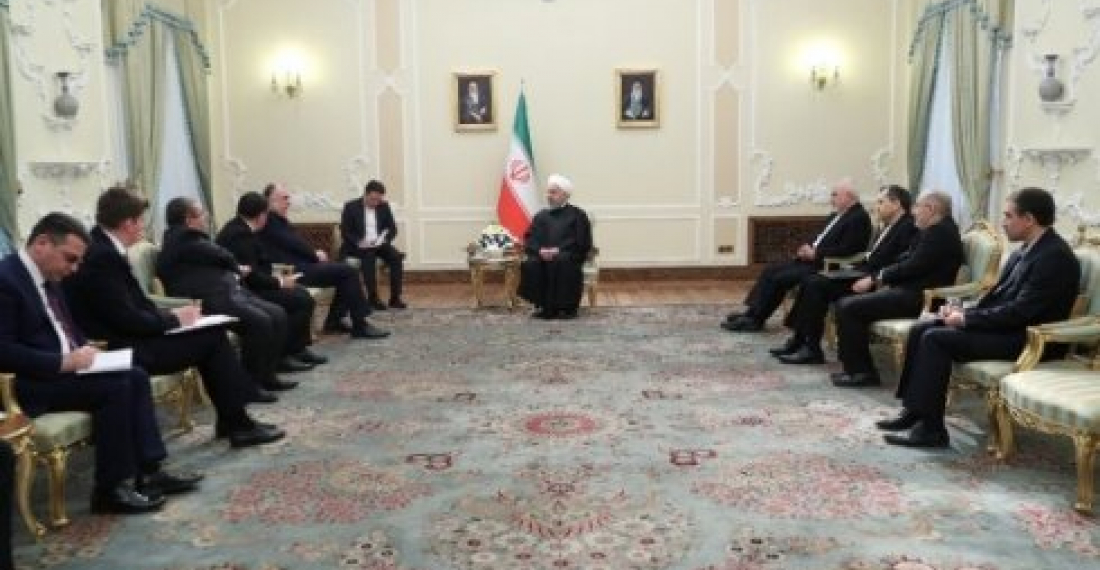Iranian President Hassan Rouhani has said relations between Iran and the Republic of Azerbaijan are expanding in different fields, underlining the need to strengthen them. Rouhani made the remarks in a meeting with visiting Azerbaijani Foreign Minister Elmar Mammadyarov in Tehran on Saturday.
The president also voiced Iran's willingness to boost trilateral cooperation with Azerbaijan and Russia by carrying out various joint projects, according to a report carried by the Mehr News Agency.
He pointed to the opportunities for cooperation between Tehran and Baku in the energy industry and construction of dams and power plants.
For his part, Mammadyarov hailed the "brotherly" relations between Tehran and Baku, saying there are no obstacles to the enhancement of political, economic, cultural and social ties with Tehran, the agency reported.
He also conveyed an official invitation from Azerbaijani president Ilham Aliyev to Rouhani to attend the next Non-Aligned Movement (NAM) conference in Baku.
Mammadyarov also met his Iranian counterpart Mohammad Javad Zarif and the Speaker of the Iranian Parliament Ali Larjani to exchange views on bilateral issues and regional developments.
Iranian media reported that the Azerbaijani foreign minister also met Ali Shamkhani, secretary of the Supreme National Security Council of Iran.
During the meeting, Mammadyarov reaffirmed that his country "will maintain close economic ties with Tehran irrespective of the sanctions", Tehran Times reported. He voiced Azerbaijan's willingness to expand relations with Iran in all fields, saying Baku welcomes any initiative to that end.
Shamkhani said Iran and Azerbaijan are determined to broaden bilateral relations, particularly in economic fields, adding that closer interaction would contribute to regional security and stability. "He emphasised that the friendly relations between the two Muslim neighbours do not pose a threat to any other country and would never be influenced by others", Tehran Times cited the Iranian official as saying.
Azerbaijan this year takes over the chairmanship of the Non-Aligned Movement, of which Iran is an active member. Iran and Azerbaijan also have plans to develop an important North-South transport corridor, which is expected to connect Northern Europe to Southeast Asia through their territories. According to the Iranian ambassador to Baku,quoted by Mehr News Agency, bilateral trade between Iran and the Republic of Azerbaijan increased by 73% in 2018.
related content: Pashinyan holds talks with Iranian leadership during Tehran visit
source: commonspace.eu with Mehr News Agency, Tehran Times and other media sources.
photo: President Rouhani of Iran on Saturday (9 March), received in Tehran the visiting Azerbaijani foreign minister Elmar Mammadyarov.






